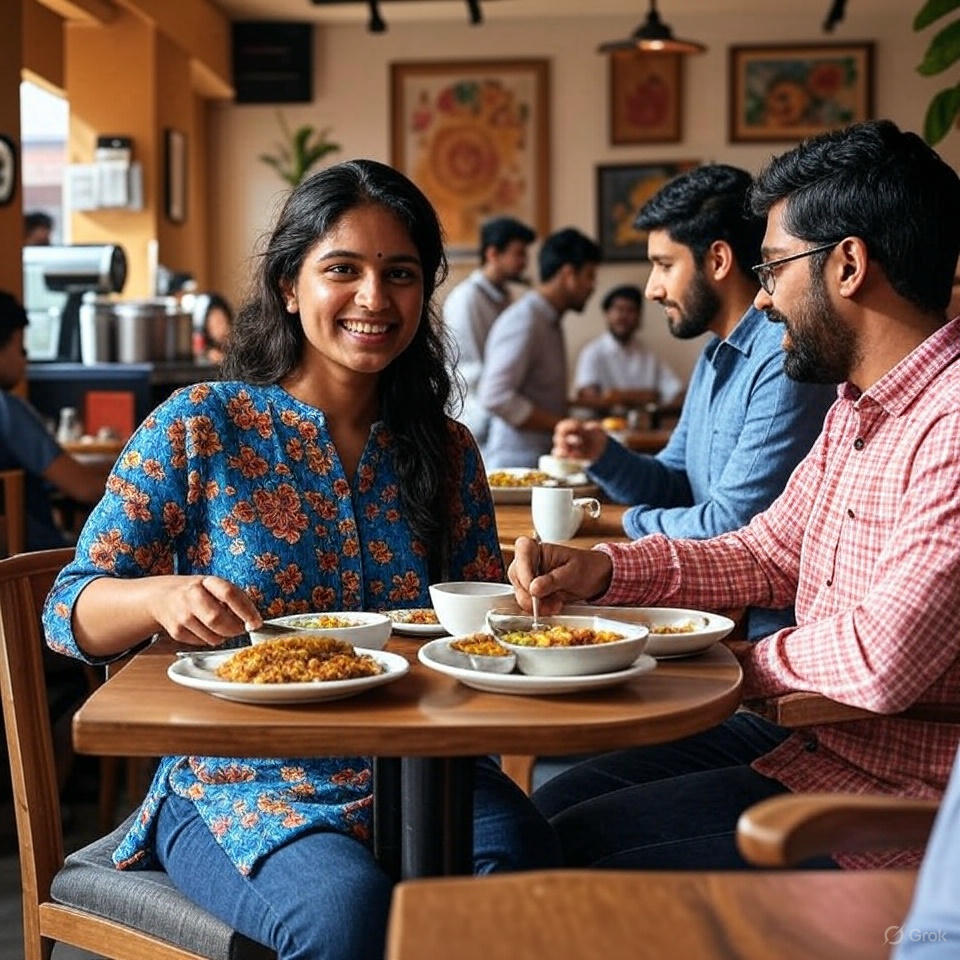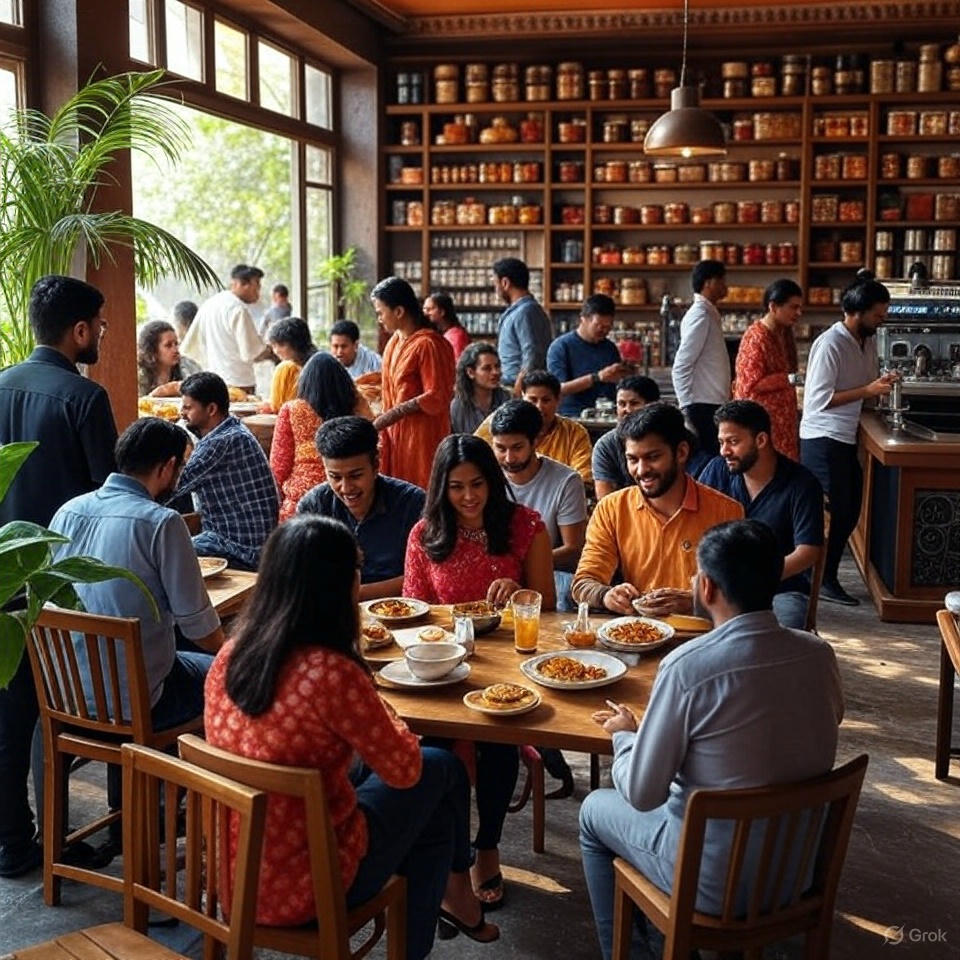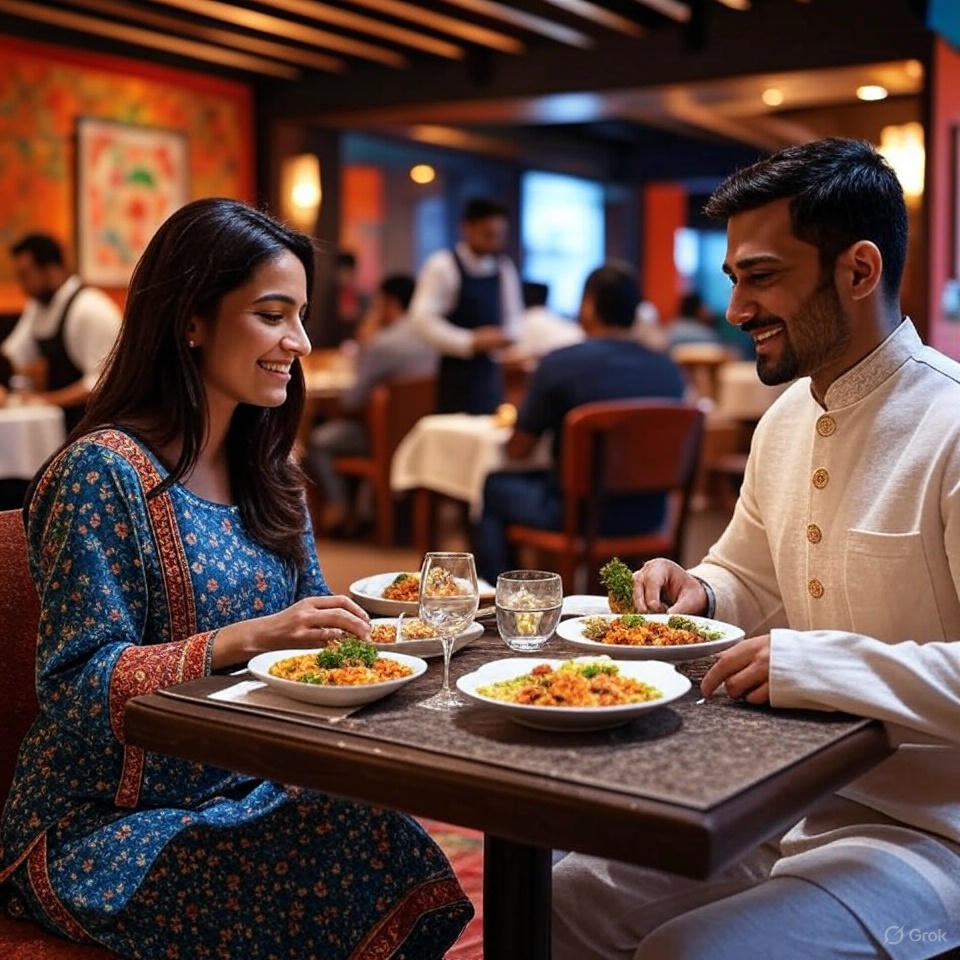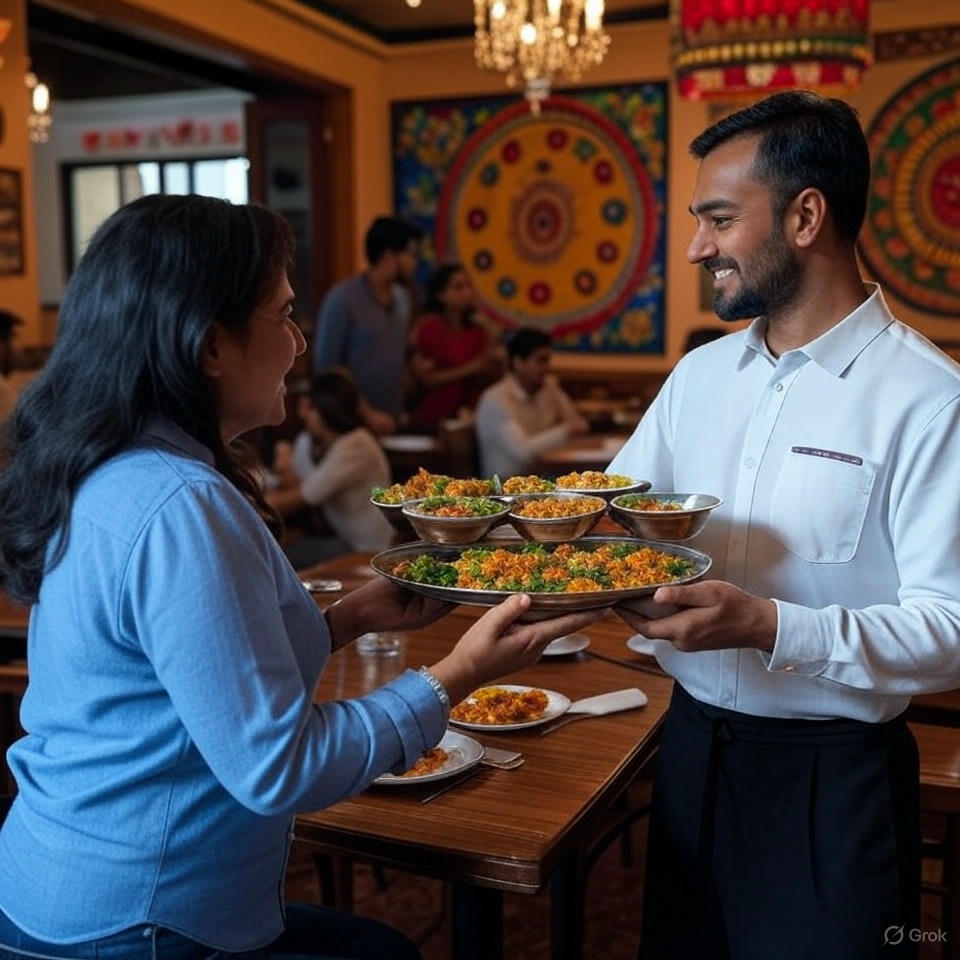India’s vibrant hospitality sector, fueled by rising domestic travel, evolving palates, and a growing middle class, presents a golden opportunity for passionate entrepreneurs. Launching a small cafe or food hotel (like a boutique guesthouse or homestay with a culinary focus) is a dream for many. However, transforming this dream into a profitable business requires meticulous planning, navigating regulations, and unwavering dedication. This guide provides a step-by-step roadmap for your startup journey in the Indian landscape.
I. Introduction: The Allure and Reality of Indian Hospitality
Imagine the aroma of freshly brewed coffee in your cozy cafe, or the satisfied smiles of guests checking into your charming, intimate food hotel. India’s diverse culture and booming tourism create fertile ground for such food ventures. However, be prepared for intense competition, complex licensing, and operational demands. This guide demystifies the process, focusing on cafe setup for intimate eateries and hotel management essentials for small accommodations (under 20 rooms), helping you lay a solid foundation for profitability.

II. Phase 1: Laying the Foundation – Concept & Planning
- Define Your Vision & Niche:
- Cafe vs. Food Hotel: Understand the core differences. A cafe typically focuses on beverages, light meals, and ambiance with lower initial investment but high daily operational intensity. A small food hotel involves accommodation, potentially with a strong F&B offering, requiring higher capital and complex licensing but offering room revenue streams.
- Find Your USP: What makes you unique? For a cafe: Speciality coffee, artisanal bakery, themed decor, healthy/organic focus, or innovative fusion integrating Indian cuisine. For a food hotel: Heritage charm, eco-friendly practices, curated local experiences, or a specific culinary theme (e.g., regional Indian cuisine focus). Your USP is vital for marketing and standing out.
- Conduct Rigorous Market Research:
- Location, Location, Location: This is paramount. For a cafe: Analyze footfall (offices, colleges, residential areas), visibility, accessibility, parking, and proximity to competitors. For a food hotel: Focus on tourist traffic patterns, proximity to attractions/business hubs, accessibility (transport links), and safety. Choosing the right location can make or break your startup.
- Know Your Audience: Who are you serving? Tourists (domestic/international), local professionals, students, families? Tailor your concept, pricing, and menu planning accordingly.
- Analyze Competitors: Study existing restaurants, cafes, and hotels. Identify their strengths, weaknesses, pricing, menus, and service gaps you can fill.
- Assess Feasibility: Is there genuine demand for your concept in the chosen location? Conduct surveys or informal polls if possible.
- Craft a Robust Business Plan:
- Executive Summary: Your vision, mission, and USP snapshot.
- Company Description: Detailed concept, target market, and legal structure (Proprietorship, LLP, or Pvt Ltd – LLP/Pvt Ltd recommended for liability protection, especially hotels).
- Market Analysis: Summarize research findings on location, competition, and target audience.
- Organization: Outline your management team/structure.
- Services/Products: For cafe: Detailed menu planning concept. For food hotel: Room types, amenities, and F&B offerings.
- Financial Projections (The Heart of Your Plan):
- Startup Costs: Renovation, equipment, licensing/legal fees, initial inventory, pre-opening marketing, working capital.
- Operating Expenses: Rent, salaries, utilities, supplies (food/beverage, cleaning), marketing, maintenance, loan repayments.
- Revenue Forecasts: Be realistic! Cafe: Estimate daily covers, average order value. Food hotel: Estimate occupancy rates (start conservatively), average daily rate (ADR).
- Break-even Analysis: When will your business start covering costs?
- Funding: Detail required capital and sources (personal savings, bank loans, investors). Clarity on investment needs is crucial.
III. Phase 2: Making it Legal – Registration & Licensing (The Indian Maze)

Navigating India’s regulatory landscape is critical. Budget time and resources for this phase.
- Business Structure:
- Register as a Proprietorship (simple, but unlimited liability), LLP, or Private Limited Company (recommended for better liability protection and credibility, especially for food hotels).
- The Licensing Labyrinth: (Consulting a CA/Lawyer is highly recommended)
- Mandatory for Both Cafe & Food Hotel:
- GST Registration: Essential for taxation.
- Shop & Establishment Act Registration: State-specific labour law compliance.
- FSSAI License (Food Safety): Non-negotiable. Central License likely needed for food hotels. Adherence to food safety standards is paramount.
- Trade License: From the local Municipal Corporation.
- Police License/Hotel Eating House License: Especially crucial for food hotels and cafes operating late.
- Fire Safety NOC: From the local fire department – critical for hotel management and increasingly for cafes.
- Signage License: For your external signboard.
- Food Hotel Specific:
- Hotel Registration Certificate: From the State Tourism Department.
- Liquor License: If serving alcohol – complex, expensive, and state-specific.
- Lift License: If the building has elevators.
- Cafe Specific:
- Music License (PPL & IPRS): If playing copyrighted music.
- Outdoor Seating Permit: If applicable, from the local corporation.
- Environmental Clearances: May be required depending on scale and location.
- Mandatory for Both Cafe & Food Hotel:
IV. Phase 3: Building Your Dream – Location, Design & Setup
- Securing the Space:
- Finalize your location based on research. Negotiate lease terms carefully (duration, rent escalation, maintenance, exit clauses, modification rights). Get the agreement legally reviewed.
- Conduct a thorough infrastructure check: Adequate water supply, drainage, sufficient electricity load (crucial for kitchens), gas lines, ventilation.
- Designing the Experience:
- Your design must embody your concept and USP. Create an inviting atmosphere.
- Food Hotel Focus: Efficient room layouts, welcoming lobby/reception, comfortable common areas, adequate storage, and functional staff areas. Prioritize guest comfort and flow.
- Cafe Focus: Optimize kitchen workflow (critical for speed and food safety), customer flow (entry, ordering, seating, exit), comfortable seating density, strategic counter placement, and clean restrooms.
- Key Elements: Lighting (natural & artificial), acoustics (minimize noise), durable & easy-to-clean materials, accessibility.
- Procurement & Setup:
- Food Hotel: Furniture, quality linens, amenities, HVAC systems, security systems, Property Management System (PMS), laundry equipment, kitchen equipment (if serving food).
- Cafe: Commercial-grade kitchen equipment (oven, hob, exhaust, refrigeration, coffee machine, dishwasher – prioritize food safety), furniture, Point-of-Sale (POS) system, crockery, glassware.
- Source reliable suppliers and negotiate terms. Consider maintenance contracts for critical equipment.

V. Phase 4: The Heart of the Matter – Operations & Team
- Crafting Your Offerings:
- Food Hotel: Develop a room pricing strategy (consider dynamic pricing), packages (e.g., breakfast included, local experience bundles).
- Cafe: Menu planning is an art and science. Curate items that align with your concept and USP. Cost recipes accurately (ingredients, labour, overhead) to set profitable prices. Source fresh, quality ingredients – highlight local or Indian cuisine specialties if relevant. Menu engineering is key to profitability.
- Building Your Dream Team:
- Hire for attitude and train for skill. Look for passion and service orientation.
- Key Roles: Chefs/Cooks, Servers, Baristas (cafe), Housekeeping (food hotel), Front Desk/Reception (food hotel), Manager.
- Comprehensive Training: Focus on customer service excellence, rigorous food safety & hygiene protocols, detailed product knowledge, standard operating procedures (SOPs), safety, and handling complaints gracefully. Empower your team.
- Establishing Robust Systems:
- SOPs (Standard Operating Procedures): Document every critical process – opening/closing, cleaning, food prep, check-in/out, billing, handling complaints. Ensures consistency and quality.
- Inventory Management: Implement systems to track stock (F&B, supplies), minimize waste, and control costs. Vital for profitability.
- Accounting & Bookkeeping: Use reliable software (cloud-based options are efficient) for daily sales tracking, expense management, and GST compliance.
- Technology: Leverage POS systems, PMS (food hotel), online reservation systems, and accounting software for efficiency.
VI. Phase 5: Opening Your Doors – Launch & Marketing
- Generate Pre-Launch Buzz:
- Soft Launch: Invite friends, family, local influencers, and media for trial runs. Gather feedback and refine operations. Offer incentives for reviews.
- Build Online Presence: Launch a simple, informative website. Create engaging profiles on Instagram and Facebook. Claim and optimize your Google My Business listing – critical for local search visibility.
- Local Marketing: Distribute flyers, partner with nearby businesses (cross-promotions), reach out to local press/bloggers.
- Grand Opening:
- Host a memorable event with special offers, live music, food tastings, or cultural performances. Target your local community and ideal customers identified in your research.
- Ongoing Marketing Strategies:
- Digital Marketing: Engage actively on social media, run targeted ads (Facebook/Instagram/Google), build an email list, optimize your website for SEO (Search Engine Optimization).
- Online Travel Agencies (OTAs – Food Hotel): List on platforms like MakeMyTrip, Booking.com, and Airbnb. Understand commission structures and manage your inventory wisely.
- Food Aggregators (Cafe – Use Strategically): Platforms like Zomato and Swiggy (Dineout) can drive initial traffic but significantly cut margins. Use selectively, perhaps for delivery-only specials.
- Loyalty Programs: Reward repeat customers to encourage retention.
- PR & Community Engagement: Participate in local events, collaborate with complementary businesses, seek positive media coverage. Exceptional customer service is your best marketing tool – encourage online reviews and respond to all feedback promptly.
VII. Phase 6: The Journey Begins – Running & Growing
- Embrace the Grind: Especially in the early days, expect long hours and hands-on hotel management or cafe oversight. Be present.
- Financial Discipline: Monitor cash flow daily. Track Key Performance Indicators (KPIs): Cafe (Table Turnover, Average Order Value); Food Hotel (Occupancy %, Average Daily Rate – ADR, Revenue Per Available Room – RevPAR). Control costs relentlessly.
- Customer is King:
- Deliver exceptional, consistent customer service. Train staff to anticipate needs and handle issues proactively.
- Actively solicit feedback (online reviews, comment cards) and respond thoughtfully, especially to complaints. Turn negatives into positives.
- Quality & Consistency: Maintain high standards in food/beverage quality, cleanliness, and service. This builds reputation and loyalty, directly impacting profitability.
- Adapt & Evolve: Stay attuned to market trends, guest preferences, and competitor actions. Be willing to refine your menu, offerings, pricing, or marketing strategies. Flexibility is key.
- Build Your Reputation: Focus on authenticity, reliability, and creating genuine positive experiences. This builds organic growth through word-of-mouth.

VIII. Conclusion: Your Hospitality Dream Awaits
Launching a small cafe or food hotel in India is a significant startup challenge, demanding passion, resilience, meticulous planning, and flawless execution. Success hinges on a compelling concept, thorough market understanding (especially location), realistic financial investment planning, navigating the licensing maze, operational excellence in hotel management or cafe setup, unwavering commitment to food safety and customer service, and the agility to adapt. While the path may seem daunting, the reward of building a thriving hospitality business – a cherished cafe hub or a beloved food hotel escape – within India’s dynamic landscape is immensely fulfilling. Consider all options, including a proven franchise model (which simplifies branding and systems but reduces autonomy), but ensure it aligns with your vision and budget. Start with a solid plan, work diligently, prioritize your guests, and pour your heart into creating a unique space. Your successful food venture in India begins now. Good luck!
Brewing Success Series




